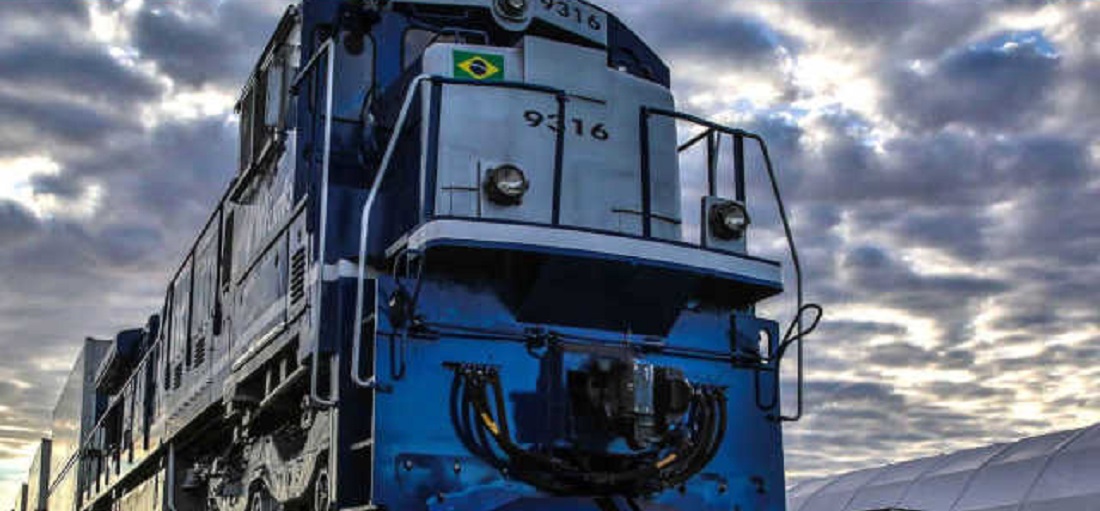
Brazil may see three more railway concession renegotiations
Oct, 24, 2024 Posted by Gabriel MalheirosWeek 202442
The federal government is studying the renegotiation of three more railway concessions: MRS, which is about to begin negotiations with the Federal Court of Accounts (TCU); Vale’s two railways; and Rumo’s Malha Oeste, people familiar with the matter say.
These agreements are considered strategic by the government, which aims to finance new railway projects with the additional funds raised in the negotiations. The amounts are closely monitored by the Ministry of Finance, which is counting on these funds to meet its fiscal target.
On the companies’ side, sources say the last few months have been uncertain regarding the progress of talks, following the rejection by the TCU’s SECEX Consenso (External Control Secretariat for Consensual Solutions and Conflict Prevention) in late August of MRS’s contract renegotiation.
In recent days, the rejection was reversed after additional information was sent to the court, according to people familiar with the matter. As a result, the secretariat has already recommended accepting the renegotiation, which could begin in the coming weeks.
The Ministry of Transportation and MRS had announced the agreement in February, with an expectation of adding R$2.6 billion to the concession. However, the addendum has not yet been formalized. An industry insider believes that taking the agreement to the TCU provides the government with a way to ensure security before signing.
Although the process has been unlocked, some market sources interpreted the SECEX’s initial rejection as a sign that negotiations will be tougher. They see this as a warning particularly for mining giant Vale, with whom the government is trying to finalize a larger and more complex agreement to renegotiate two railway concessions: the Vitória-Minas Railway and the Carajás Railway.
The government and Vale already have an agreement on the additional amount to be paid, but several adjustments still need to be negotiated, one person said. A few months ago, the company expected to pay around R$15 billion, while the Ministry of Transportation had estimated R$25 billion in the budget.
One person familiar with the situation mentioned that the aim is to submit Vale’s case to the TCU by the end of this year. However, after the TCU initially rejected MRS’s request—where the court demanded more detailed calculations and stronger technical justifications for the changes to the list of works—the government and the company have been refining their studies before submission.
Despite concerns, people close to the government say they do not foresee major issues in the discussions with the TCU, noting that the initial rejection of MRS’s renegotiation was resolved after clarifications, and there is no fear regarding Vale’s agreement, though they acknowledge that negotiations within SECEX Consenso are tough.
The TCU said in a statement “there is no decision or public documents” on the processes. The Ministry of Transportation said it “cannot comment on ongoing negotiations at the TCU due to confidentiality rules, as well as the terms of confidentiality.”
MRS declined to comment. Vale said in a statement it “is in advanced discussions with the Ministry of Transportation regarding the general conditions for optimizing investment plans in the concession contracts, which are currently being regularly executed by the company.”
The new MRS and Vale contracts were signed under the previous government as part of the early renewal of concessions, which were extended in exchange for new investments and payment of fees. Since last year, with the new government, the addendums have returned to the negotiating table under accusations that the values were underestimated.
Additionally, people familiar with the matter say the companies themselves need renegotiation, as the list of works included in the contracts has many flaws and challenges, making compliance unfeasible—leaving room for accusations of non-compliance with obligations.
Under SECEX Consenso at the TCU, Rumo was the first to sign a renegotiation, for Malha Paulista. In the agreement, the company adjusted its list of obligations and added R$500 million in investments, along with R$670 million in payments to the government.
Now, another of Rumo’s contracts is under review for renegotiation at the TCU, the Malha Oeste. This case differs from the others, as the negotiation aims to solve a deficit-ridden and unattractive contract that Rumo has been attempting to return to the government since 2020 for reauctioning. The problem, according to market sources, is that the asset is unlikely to attract interest from other groups in a new auction. The renegotiation, therefore, emerged as a solution to make the contract economically viable and enable new investments.
People familiar with the matter say a working group has already developed a potentially viable project, but financial studies are still underway. The idea is to focus operations on transporting pulp—a sector with several new factories in Mato Grosso do Sul—and minerals from Corumbá in the same state. To achieve this, the railway would need to be reduced in size, its track gauge changed (adjusting the distance between the rails), and new sections built from scratch. However, sources say the government has yet to form a consensus on the renegotiation, and the project is complex. Rumo declined to comment.
Source: Valor International
-
Other Cargo
Jun, 22, 2022
0
Chemical imports hit record monthly value
-
Nov, 27, 2020
0
Brazilian fruit exports to Arab countries expected to grow in 2021
-
Shipping
Jun, 01, 2022
0
Brazil is the largest container-handling country in Latin America and the Caribbean
-
Meat
Apr, 22, 2022
0
Brazilian meat exporters find trouble shipping products to Shanghai



